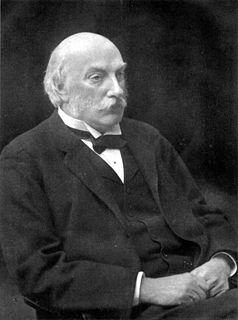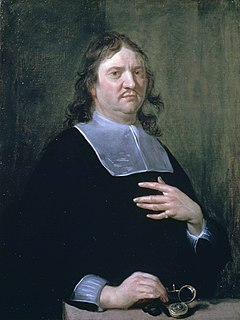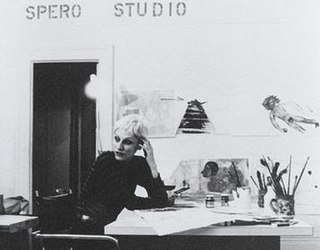Top 530 Printed Quotes & Sayings - Page 9
Explore popular Printed quotes.
Last updated on November 18, 2024.
The history of this paper suggests that highly speculative investigations, especially by an unknown author, are best brought before the world through some other channel than a scientific society, which naturally hesitates to admit into its printed records matters of uncertain value. Perhaps one may go further and say that a young author who believes himself capable of great things would usually do well to secure the favourable recognition of the scientific world by work whose scope is limited and whose value is easily judged, before embarking upon higher flights.
The Library didn't only contain magical books, the ones which are chained to their shelves and are very dangerous. It also contained perfectly ordinary books, printed on commonplace paper in mundane ink. It would be a mistake to think that they weren't also dangerous, just because reading them didn't make fireworks go off in the sky. Reading them sometimes did the more dangeous trick of making fireworks go off in the privacy of the reader's brain.
I mean, props to Paris Hilton because she's doing it really well and for someone that's such a wealthy heiress she doesn't really have to lift a finger at all. She was the first example of really strong branding and is obviously a very clever businesswoman. I remember recently they printed in a British magazine, they compared her to Kim Kardashian in the sales of perfume and all of this other stuff. She still makes huge revenue from all of her different business endeavors.
Seine et Danube was launched in 2003 with the help of Romanian authorities who had finally realized the necessity of promoting literature and Romanian culture in general. Along with focusing on the literature of the countries the Danube traversed (with an emphasis on Romania), we printed work that interested us from the banks of the Seine: French and French-Romanian authors like Cioran and Fondane. We dedicated our last edition to surrealism and Esthetic Onirisme.
The woodchopper reads the wisdom of the ages recorded on the paper that holds his dinner, then lights his pipe with it. When we ask for a scrap of paper for the most trivial use, it may have the confessions of Augustine or the sonnets of Shakespeare, and we not observe it. The student kindles his fire, the editor packs his trunk, the sportsman loads his gun, the traveler wraps his dinner, the Irishman papers his shanty, the schoolboy peppers the plastering, the belle pins up her hair, with the printed thoughts of men.
The dirty little secret about comics is that the wall to getting published is actually not that high. You can publish your own comic. You can have your comic printed by the same people that print Marvel and DC and Image's comics for, I think, it's about $2,000 for a print run. So you can Kickstart it and get your own comic made. It depends on what is considered success to you. So if you need to be published by the Big Two to feel that you've made it, well, you should start working very hard.
all through my childhood, my father kept from me the knowledge that the daily papers printed daily box scores, allowing me to believe that without my personal renderings of all those games he missed while he was at work, he would be unable to follow our team in the only proper way a team should be followed, day by day, inning by inning. In other words, without me, his love for baseball would be forever incomplete.
Nowadays when a poet with one privately printed book can have his next three years taken care of by a Guggenheim fellowship, a Kenyon Review fellowship, and the Prix de Rome, it is hard to remember what chances the poet took in that small-town world, how precariously hand-to-mouth his existence was. And yet in one way the old days were better; [Vachel] Lindsay after a while, by luck and skill, got far more readers than any poet could get today.
A writer never forgets the first time he accepted a few coins or a word of praise in exchange for a story. He will never forget the sweet poison of vanity in his blood and the belief that, if he succeeds in not letting anyone discover his lack of talent, the dream of literature will provide him with a roof over his head, a hot meal at the end of the day, and what he covets the most: his name printed on a miserable piece of paper that surely will outlive him. A writer is condemned to remember that moment, because from then on he is doomed and his soul has a price.
For we let our young men and women go out unarmed in a day when armor was never so necessary. By teaching them to read, we have left them at the mercy of the printed word. By the invention of the film and the radio, we have made certain that no aversion to reading shall secure them from the incessant battery of words, words, words. They do not know what the words mean; they do not know how to ward them off or blunt their edge or fling them back; they are prey to words in their emotions instead of being the masters of them in their intellects.
[The web] is going to end up being a tremendous advantage, providing we can work out the financial structure. I think we’ll see newspapers survive, being printed at home... Or you’ll have a local print shop, so that rather than waiting for the newspapers to arrive by truck, which is 30 percent at least of a newspaper’s cost, you’ll go in and push a button, and it will take your dollar bills without anyone having to be there. And it will print the newspaper for you while you wait. It will take seven minutes. There’s a terrific future for print in my view and it gives me great heart.
The copies of The Catcher In The Rye or To Kill A Mockingbird that I own look like they were printed yesterday, and there's not a nick, not a blur, there's not any fading on the jacket at all, because they were taken and protected. A limited edition, by nature, is limited, and also probably more protected because of that. I'd rather have a first trade edition than a special one of 25 that was made years later, even if it's signed by the author. The trade edition is the Holy Grail.
The line-by-line, sequential, continuous form of the printed page slowly began to lose its resonance as a metaphor of how knowledge was to be acquired and how the world was to be understood. "Knowing" the facts took on a new meaning, for it did not imply that one understood implications, background, or connections. Telegraphic discourse permitted no time for historical perspectives and gave no priority to the qualitative. To the telegraph, intelligence meant knowing of lots of things, not knowing about them.
Before the internet, a journalist would write an article about a company that the company felt was unfair and missed a point. All they could do was write a letter to the editor and wait, and maybe a week later it would be printed, or not. Now, they can go to medium.com and immediately publish a long rebuttal, saying the journalist forgot this and did not consider that, the analyst is wrong here. Everybody pulls that immediately into the debate. So it is a much more democratic field for ideas.
Let the children have their night of fun and laughter. Let the gifts of Father Christmas delight their play. Let us grown-ups share to the full in their unstinted pleasures before we turn again to the stern task and the formidable years that lie before us, resolved that, by our sacrifice and daring, these same children shall not be robbed of their inheritance or denied their right to live in a free and decent world." Winston Churchill Christmas Eve Message, 1941 as printed in "In the Dark Streets Shineth.
[Mary Wortley Montagu] wrote more letters, with fewer punctuation marks, than any Englishwoman of her day; and her nephew, the fourth Baron Rokeby, nearly blinded himself in deciphering the two volumes of undated correspondence which were printed in 1810. Two more followed in 1813, after which the gallant Baron either died at his post or was smitten with despair; for sixty-eight cases of letters lay undisturbed ... 'Les morts n'écrivent point,' said Madame de Maintenon hopefully; but of what benefit is this inactivity, when we still continue to receive their letters?
More paper money cannot make a society richer, of course, – it is just more printed-paper. Otherwise, why is it that there are still poor countries and poor people around? But more money makes its monopolistic producer (the central bank) and its earliest recipients (the government and big, government-connected banks and their major clients) richer at the expense of making the money's late and latest receivers poorer.
Printed prose is historically a most peculiar, almost an aberrant way of telling stories, and by far the most inherently anesthetic: It is the only medium of art I can think of which appeals directly to none of our five senses. The oral and folk tradition in narrative made use of verse or live-voice dynamics, embellished by gesture and expression--a kind of rudimentary theater--as do the best raconteurs of all times. Commonly there was musical accompaniment as well: a kind of one-man theater-of-mixed-means.
I begin with understanding the intentions of the story. That helps me to zero in. Then I gather research for each individual character and analyze the time period with comparisons to the figure and the facial structure. It helps to be comfortable with computers because the massive amount of research is kept electronically and shared with my staff this way. Very little is printed out. I work with an illustrator to come up with the proper silhouettes and details of the clothing from the time period to time period. And on and on.
I wrote this story for you, but when I began it I had not realized that girls grow quicker than books. As a result you are already too old for fairy tales, and by the time it is printed and bound you will be older still. But some day you will be old enough to start reading fairy tales again. You can then take it down from some upper shelf, dust it, and tell me what you think of it. I shall probably be too deaf to hear, and too old to understand a word you say, but I shall still be your affectionate Godfather, C. S. Lewis.
If everything is made so obvious that it asks nothing of the readers, then after a while, their ability to respond is atrophied. And they grow up as young people unable to take anything from a printed page, or they become bored because they haven't discovered the nuances, the differences of opinion, the differences of approach between one author and another. Children can be trusted to skip what they don't like in a book. That's perfectly all right. But to have it all reduced to the supposedly twelve-year-old mind of the adult public is what I object to.
The King saw them with no common satisfaction, expressing his desire in no particular to have yt Stellar fish engraven and printed. We wish very much, Sir, yt you could procure for us a particular description of yesd Fish, viz. whether it be common there; what is observable in it when alive; what colour it then hath; what kind of motion in the water; what use it maketh of all that curious workmanship, wch Nature hath adorn'd it with?
If there is a god, he is not only a wizard at leaving clues behind. More than anything, he's a master of concealment. And the world is not something that gives itself away. The heavens still keep their secrets. There is little gossip amongst the stars. But no one has forgotten the Big Bang yet. Since then, silence has reigned supreme, and every thing there is moving away. One can still come across a moon. Or a comet. Just don't expect friendly greetings. No visiting cards are printed in space.
I find I think of myself not as a writer so much as someone who provides a gateway, a tangential route for readers to reach the circus. To visit the circus again, if only in their minds, when they are unable to attend it physically. I relay it through printed words on crumpled newsprint, words that they can read again and again, returning to the circus whenever they wish, regardless of time of day or physical location. Transporting them at will. When put that way, it sounds rather like magic, doesn't it? p.369
There isn't a single government agency that can't function. There's more money in this federal government, there's more money allocated than these people can possibly spend. They have to concoct asinine ways to spend it, like advertising for new food stamp users. I've gotten to the point, I'm just so righteously indignant and offended at the very idea that our government could ever run out of money when we've got a printing press, for crying out loud. Printed three and a half trillion dollars over seven years and flooded Wall Street with it.
The reality that is present to us and in us: call it being...Silence. And the simple fact that by being attentive, by learning to listen (or recovering the natural capacity to listen) we can find ourself engulfed in such happiness that it cannot be explained: the happiness of being at one with everything in that hidden ground of Love for which there can be no explanations.... May we all grow in grace and peace, and not neglect the silence that is printed in the center of our being. It will not fail us.
As for the differences between audio and the printed page, the sonic aspects of poetry are important to me. I read my poems aloud to myself as I'm composing them. And I enjoy reading to an audience. I think people get tone more easily when they hear a writer read her work. Some people have told me they hear more humor in my poems at a live reading than when they see them on the page. I think that may be a matter of pacing. On the other hand, I've listened to a lot of poetry readings and I know how much you can miss. If you stop to really register one line, you miss the next three or so.
Historically, the Old Charges fall into three groups. The first comprises the two earliest versions, the Regius MS of c.1390 and the Cook MS of c.1420...The second, and largest, group begins with the Grand Lodge No. 1 MS, dated 25 December 1583, and covers all the versions datable before the formation of the premier Grand Lodge in 1717. The third group comprises manuscript and printed versions produced after 1717, the majority of which appear to have been produced as antiquarian curiosities.
More than anything, the journal wanted. It wanted more than it could hold, more than words could describe, more than diagrams could illustrate. Longing burst from the pages, in every frantic line and every hectic sketch and every dark-printed definition. There was something pained and melancholy about it.
When I was a kid my primary goal in life was to find a book that was alive. Not alive in the human sense, but like a thing that would send me to a place not otherwise accessible on Earth. This book should have hidden words encrypted beneath the printed ones, so that if I worked hard enough and discovered the code I would somehow end up inside the book, or the book would take on a body and consume me, revealing a secret set of rooms behind the wall in my bedroom, for instance, inside which anything could be.
It had been startling and disappointing to me to find out that story books had been written by people, that books were not natural wonders, coming up of themselves like grass. Yet regardless of where they come from, I cannot remember a time when I was not in love with them - with the books themselves, cover and binding and the paper they were printed on, with their smell and their weight and with their possession in my arms, captured and carried off to myself. Still illiterate, I was ready for them, committed to all the reading I could give them.
When I showed ‘Black and the Red III’ in Malmö, Sweden, it was a continuum - a band - all around the galleryseeing this huge space in the gallery in Malmö, I just took a deep breath and I put the paper around in a single band. Then I continued along, printing on the wall like a trompe l’oeil to reiterate the images in the work printed on paper that I had push-pinned to the wall. I literally took the rhythm and the images from ‘Black and the Red III’ and continued that on the wall.
Will there ever be an encyclopedia? Possibly. I would say two things about the encyclopedia: firstly, I’ve always said and I stand by it, whenever I do do a printed encyclopedia I would like all the proceeds to go to charity. Back in 1998 I never dreamt I personally I would be in the position that I could set up a large charitable foundation and personally do things for charity, and I’ve done other charity books already.
A map in the hands of a pilot is a testimony of a man's faith in other men; it is a symbol of confidence and trust. It is not like a printed page that bears mere words, ambiguous and artful, and whose most believing reader - even whose author, perhaps - must allow in his mind a recess for doubt. A map says to you, 'Read me carefully, follow me closely, doubt me not.' It says, 'I am the earth in the palm of your hand. Without me, you are alone and lost.
Once you get into the era of the printed book, it gets a little easier. After years and years, you make a serious survey of that literature, and then you make it more specific depending on what kind of case appears. I never set out to collect material on cheating at bowling, but I found out that after 20 years, I had a lot of material on cheating at bowling.
Now a writer can make himself a nice career while he is alive by espousing a political cause, working for it, making a profession of believing in it, and if it wins he will be very well placed. All politics is a matter of working hard without reward, or with a living wage for a time, in the hope of booty later. A man can be a Fascist or a Communist and if his outfit gets in he can get to be an ambassador or have a million copies of his books printed by the Government or any of the other rewards the boys dream about.
The night in prison was novel and interesting enough.... I found that even here there was a history and a gossip which never circulated beyond the walls of the jail. Probably this is the only house in the town where verses are composed, which are afterward printed in a circular form, but not published. I was shown quite a long list of verses which were composed by some young men who had been detected in an attempt to escape, who avenged themselves by singing them.
I look upon the giving away of a religious tract as only the first step for action not to be compared with many another deed done for Christ; but were it not for the first step we might never reach to the second, but that first attained, we are encouraged to take another, and so at the last There is a real service of Christ in the distribution of the gospel in its printed form, a service the result of which heaven alone shall disclose, and the judgment day alone discover. How many thousands have been carried to heaven instrumentally upon the wings of these tracts, none can tell
There are people already sharing eBooks out there, .. and they do it simply because they love books. You don't buy a second copy of a book, cut the spine off, lay each page on a scanner, run that .tif through an OCR (Optical Character Reader), hand edit the resulting output for errors and then post it online if you don't love the book. it can up to 80 hours to turn a printed novel into an eBook. I figure if someone out there is willing to put in 80 hours of work promoting my book, then I'd prefer they do it in a way that gives a better return to me.
If you take a book with you on a journey," Mo had said when he put the first one in her box, "an odd thing happens: The book begins collecting your memories. And forever after you have only to open that book to be back where you first read it. It will all come into your mind with the very first words: the sights you saw in that place, what it smelled like, the ice cream you ate while you were reading it... yes, books are like flypaper—memories cling to the printed page better than anything else.
One of the many things I love about bound books is their sheer physicality. Electronic books live out of sight and out of mind. But printed books have body, presence. Sure, sometimes they'll elude you by hiding in improbable places... But at other times they'll confront you, and you'll literally stumble over some tomes you hadn't thought about in weeks or years. I often seek electronic books, but they never come after me. They may make me feel, but I can't feel them. They are all soul with no flesh, no texture, and no weight. They can get in your head but can't whack you upside it.
Perhaps there's another, much larger story behind the printed one, a story that changes just as our own world does. And the letters on the page tell us only as much as we'd see peering through a keyhole. Perhaps the story in the book is just the lid on a pan: It always stays the same, but underneath there's a whole world that goes on - developing and changing like our own world.
For example, John Law's Mississippi Company venture printed shares, and the money had gone up in smoke when it had been inscribed objects. The inscription made it magic and changed its meaning. That's how objects become charmed in The Arabian Nights, and they are often originally ordinary objects. The carpet is an ordinary, paltry object. The lamp is a rusty old lamp, and the bottles jinns are imprisoned within are old bottles. They are changed by the magic and the jinn's presence, and the jinn's presence is often embodied in the seal or inscription.
I pledge to set out to live a thousand lives between printed pages. I pledge to use books as doors to other minds, old and young, girl and boy, man and animal. I pledge to use books to open windows to a thousand different worlds and to the thousand different faces of my own world. I pledge to use books to make my universe spread much wider than the world I live in every day. I pledge to treat my books like friends, visiting them all from time to time and keeping them close.
Some people spend their whole lives looking for themselves, yet our self is the one thing we surely cannot lose (how like a cheap philosopher I am become, staying in this benighted place). From the moment we are conceived it is the pattern in our blood and our bones are printed through with it like sticks of seaside rock. Nora, on the other hand, says that she’s surprised anyone knows who they are, considering that every cell and molecule in our bodies has been replaced many times over since we were born.
So the British, of all ages, still walk the course. On trips to Florida or the American desert, they still marvel, or shudder, at the fleets of electric carts going off in the morning like the first assault wave at the Battle of El Alamein. It is unlikely, for some time, that a Briton will come across in his native land such a scorecard as Henry Longhurst rescued from a California club and cherished till the day he died. The last on its list of local rules printed the firm warning "A Player on Foot Has No Standing on the Course."
The true poem is not that which the public read. There is always a poem not printed on paper,... in the poet's life. It is what hehas become through his work. Not how is the idea expressed in stone, or on canvas or paper, is the question, but how far it has obtained form and expression in the life of the artist. His true work will not stand in any prince's gallery.
For us Christians, love of neighbour springs from love of God; and it is its most limpid expression. Here one tries to love one's neighbour, but also to allow oneself to be loved by one's neighbour. These two attitudes go together, one cannot be exercised without the other. Printed on the letterhead of the Missionaries of Charity are these words of Jesus: "as you did it to one of the least of these my brethren, you did it to me". Loving God in our brethren and loving our brethren in God.
I wonder, what's in a book while it's closed. Oh, I know it's full of letters printed on paper, but all the same, something must be happening, because as soon as I open it, there's a whole story with people I don't know yet and all kinds of adventures, deeds and battles. And sometimes there are storms at sea, or it takes you to strange cities and countries. All those things are somehow shut in a book. Of course you have to read it to find out. But it's already there, that's the funny thing. I just wish I knew how it could be.
Many musicians are fabulously skilled at playing the black dots on the printed page, but mystified by how the dots got there in the first place and apprehensive of playing without dots. Music theory does not help here; it teaches rules of the grammar, but not what to say. When people ask me how to improvise, only a little of what I can say is about music. The real story is about spontaneous expression, and it is therefore a spiritual and a psychological story rather than a story about the technique of one art form or another.













































